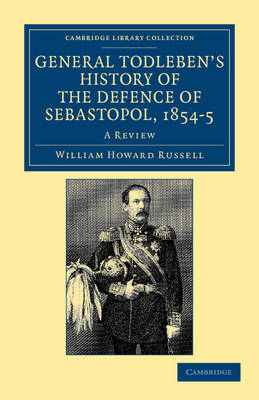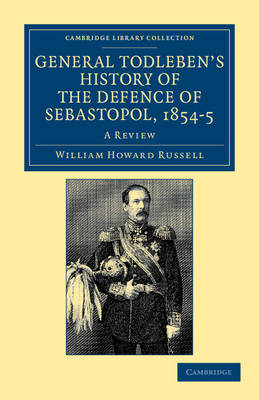
- Afhalen na 1 uur in een winkel met voorraad
- Gratis thuislevering in België vanaf € 30
- Ruim aanbod met 7 miljoen producten
- Afhalen na 1 uur in een winkel met voorraad
- Gratis thuislevering in België vanaf € 30
- Ruim aanbod met 7 miljoen producten
Zoeken
€ 78,95
+ 157 punten
Omschrijving
The journalist William Howard Russell (1820-1907) is sometimes regarded as being the first war correspondent, and his reports from the conflict in the Crimea are also credited with being a cause of reforms made to the British military system. This 1865 book began as a review in The Times of the five-volume work of General Eduard Todleben (or Totleben), the military engineer and Russian Army General, whose work in creating and continually adapting the land defences of Sevastopol in 1854-5 made him a hero and enabled the fortress to hold out against British bombardment for a whole year. Russell added extracts from the original book to his review, and enlarged his commentary on the Russian text, producing a thorough and accurate synthesis, but always highlighting the central importance of the Russian work to any student of the history of the Sevastopol siege.
Specificaties
Betrokkenen
- Auteur(s):
- Uitgeverij:
Inhoud
- Aantal bladzijden:
- 340
- Taal:
- Engels
- Reeks:
Eigenschappen
- Productcode (EAN):
- 9781108044684
- Verschijningsdatum:
- 22/03/2012
- Uitvoering:
- Paperback
- Formaat:
- Trade paperback (VS)
- Afmetingen:
- 140 mm x 216 mm
- Gewicht:
- 430 g

Alleen bij Standaard Boekhandel
+ 157 punten op je klantenkaart van Standaard Boekhandel
Beoordelingen
We publiceren alleen reviews die voldoen aan de voorwaarden voor reviews. Bekijk onze voorwaarden voor reviews.








